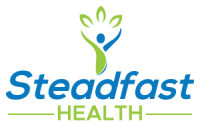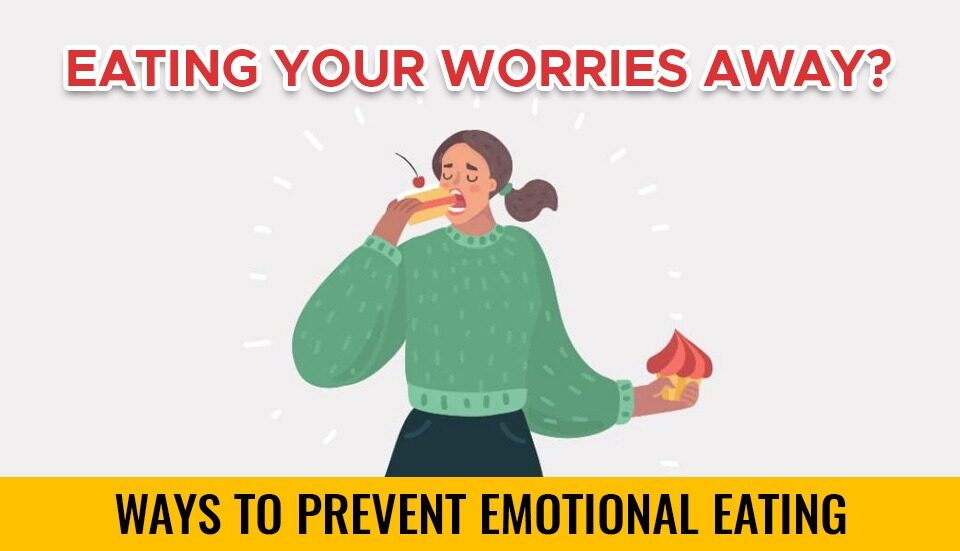Do you rush towards your fridge to get some ice cream after a stressful day at work? Do you binge eat after a trivial tiff with your spouse or friends? Eating in such situations might be called stress eating, or, more accurately, emotional eating. Emotional eating has seen a sharp spike during the COVID-19 pandemic. All of us have engaged in mindless snacking while working from home. Many negative emotions like anger, sadness, and even stress can trigger bad eating habits. When an individual reaches out for comfort foods to soothe their negative feelings, it might impact them in negative ways. Overindulgence in food will bring problems like weight gain and even impact overall wellness.
Why do people turn to food to satiate their emotional void?
When experiencing negative emotions, one may feel a sense of emptiness. Turning to comfort foods are known to be the medium to fill that void. It is because eating certain foods can lead to fullness for a temporary period.
Other factors to consider:
- Escaping from the situation when requiring emotional support
- Not relying on stress-busting activities
- Unable to distinguish between physical or emotional hunger
- Change in the cortisol level leading to unwanted cravings
Signs of emotional eating:
- Having a sudden craving that needs immediate attention
- Craving for specific foods at times, for instance, craving for just chocolate
- Overeating
- Sense of guilt or shame
Type of comfort foods based on emotions:
- When people are in a happy mood, they tend to eat foods like pizza, burgers, and mostly junk foods
- When people are sad, they prefer to eat ice cream or cookies
- When people are feeling bored they prefer salty chips and crunchy foods to satisfy their emptiness
How to stop emotional eating?
Emotional eating becomes a problem when it becomes the only coping strategy to deal with underlying stress or negative emotions. Let’s check some of the strategies to opt to minimise emotional eating:
Find out what triggers your emotional eating
It might be the short-term issues that trigger your emotional eating habits such as a typically stressful day at work or an argument with a close one. However, there can be bigger issues that are causing you to do stress eating like chronic stress, anger, and depression. Make sure to find what exactly triggers your emotional eating and then try to eliminate it.
Learn new ways to cope with your stress
Resorting to comfort foods to ease negative emotions is the foremost step. One of the effective ways to avoid stress eating is by discovering ways to cope with negative stress. Indulge in a variety of activities to take your mind away from foods. Activities like writing a journal, reading a book or photography are good ways to begin.
Add Vitamin D rich foods to your diet
Add foods rich in Vitamin D to your diet like fortified yoghurt, milk, cereals, eggs, and mushrooms. These are known to improve mood.
Get enough sleep
Sleep deprivation triggers increased levels of the hunger hormone ghrelin and suppresses signals associated with fullness. Aim at getting seven to nine hours of sleep each night.
Begin writing a food diary
Make sure to track what you eat and why you eat. Doing this will help identify triggers that let you jump to emotional eating. It is imperative to jot down every bit of detail.
Focus on eating a healthy diet
Eating a balanced diet can help you get all the essential nutrients to fuel your body. This strategy is crucial because it will help you distinguish whether you are eating irrespective of stress, boredom or anger.
Other ways to adopt:
- Try meditation as studies suggest mindfulness meditation is a helpful treatment for emotional eating
- Get rid of high-calorie foods like chips, chocolate, ice cream from your kitchen cabinet or office drawer
- Eat whole grains and high fibre food
- Make sure to avoid going grocery shopping when upset
The views and opinions expressed, and assumptions & analysis presented in this content piece are those of the author(s) and do not necessarily reflect the official policy or position of any other agency, organization, employer or company. The information, including but not limited to, text, graphics, images and other material contained on this website are for informational purposes only. The purpose of this website is to promote broad consumer understanding and knowledge of various health topics. It is not intended to be a substitute for professional medical advice, diagnosis or treatment. Always seek the advice of your physician or other qualified health care provider with any questions you may have regarding a medical condition or treatment and before undertaking a new health care regimen, and never disregard professional medical advice or delay in seeking it because of something you have read on this website.




